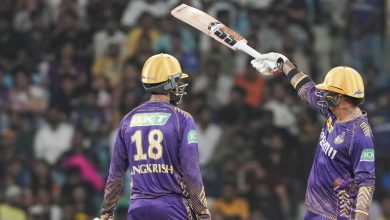Lessons for Saudi Arabia: Why did the Chinese Super League fail?

A few years before Saudi Arabia’s recent cash splurge, China was the one to carry the mantle of a burgeoning Asian super power. Buoyed president Xi Xi Jinping’s desire to develop the nation into a footballing force, a lot of businesses, especially from real estate, started investing in the sport. Soon, the Chinese Super League (CSL) was signing players like Oscar, Hulk, Paulinho and Jackson Martinez, something that was unheard of for Asian clubs at that time.
But soon, everything fell apart. The financial issues that the coronavirus pandemic raised were too much for the CSL as well as the country to handle. In 2021, Jiangsu FC went out of business after its owners pulled out. One of the biggest blows, however, was dealt to Guangzhou FC who had won 8 Chinese titles and two Asian champions but were relegated in December of 2022.
Though the pandemic played a big part in the decline of the CSL as we know it, the downfall had already started before Covid had gripped the planet. It was what is believed to be the final nail in the coffin for a football league that had once threatened to take over Asian as well as the global market as a whole.
In order to lure in stars like Carlos Tevez and Didier Drogba, the Chinese clubs had to spend a lavish amount. In the 2016-27 season’s December-January transfer window, they had spent over 400 million dollars which was more than any other league in the world. But it was the transfer of Ezequiel Lavezzi from Paris Saint Germain to Hebei China Fortune which might have eventually forced the Chinese authority to introduce a salary cap on foreign signings in 2021.
According to various reports, Lavezzi pocketed a cool £798,000 a week in 3 years that he spent in China before retiring in 2019. He was also the highest earner in the CSL and nobody has even come close to earning that amount.
The debts which were caused these aforementioned big signings would ultimately nudge the CSL towards its inevitable doom. It became the monster that ate itself. Most of the top tier clubs in China were owned property owners who invested money in them in order to stay in the ruling Chinese Commun Party’s (CCP) good books. Towards the last decade’s end, a slowdown in the overheated real estate sector was already a cause for concern for these private entities. The Covid pandemic just accelerated the end.
After the pandemic hit and lockdown was imposed, players had to play in empty stadiums bereft of fans which ultimately had an effect on sponsorships and revenue as a whole.
There are other biting problems as well, as the Chinese Football Association became embroiled in corruption charges in March 2023. CFA president Chen Xuyuan was arrested on corruption charges while other officials were under investigation for serious violations of the law. This included former national team coach Li Tie, one of the most recognizable faces in Chinese football.
Another problem that the CSL faced which led to it losing its lustre was when a new rule was introduced in 2018 which was designed to stop the clubs from spending lavish fees on foreign players. The new rule said that “any club that spent more than £5m on an overseas player would be forced to make the same payment to the CFA”. This ultimately stemmed the influx of foreign players in the league and the buzz around them slowly died.
The general public stayed away from games and as a result the money stopped coming in which made it very hard for the clubs to continue paying the players the amount that was promised. As a result, their wealthy owners pulled the fundings, leading to a lot of clubs ceasing business. The rules which were designed to provide more playing time to homegrown players in order to improve the national team’s prospects had terribly backfired and ultimately the pandemic snuffed out any remaining hopes of China’s dream of becoming a global footballing force.
Recently, the CSL has started functioning as per usual after three and a half years of Covid-affected circumstances but it’ll still take a long time for it to recapture the glory days. Meanwhile, the middle-east countries are slowly and steadily building their reputations as the new Asian powerhouses as football stands at the brink of a new revolution.







